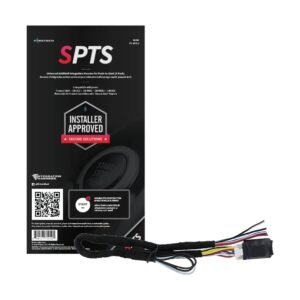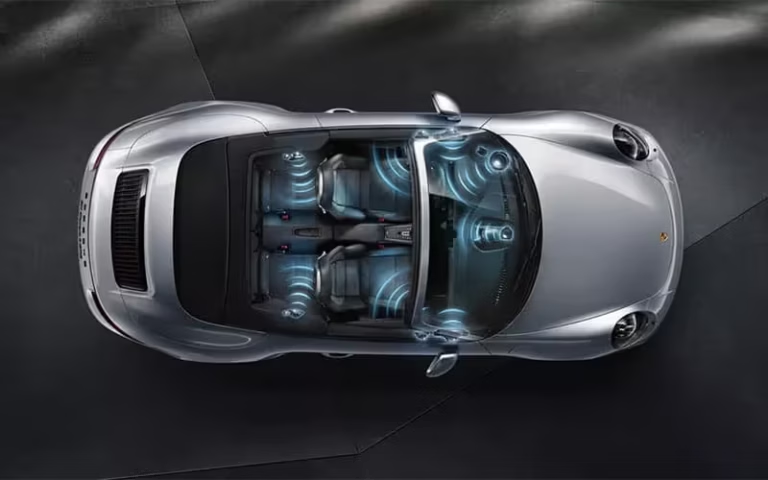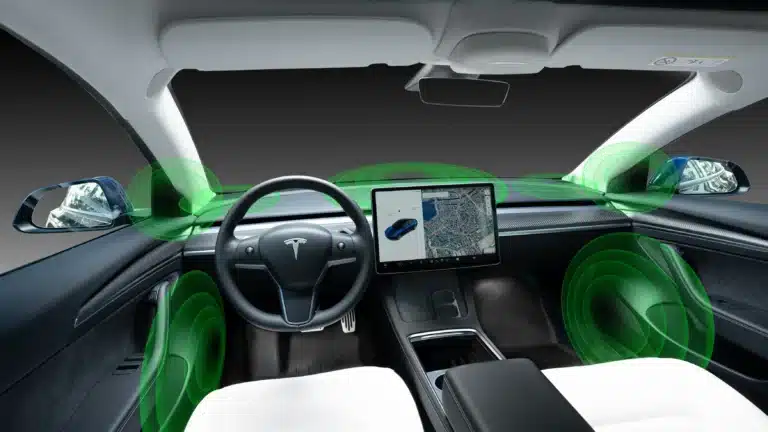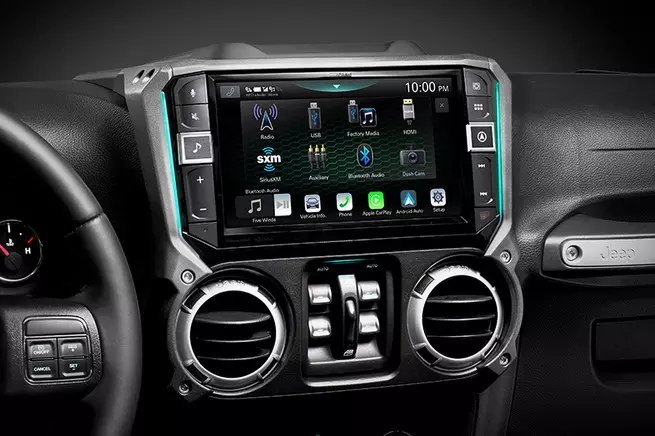Car Thieves Use Relay Attacks, CAN Hacks & Key Cloning
Car theft in Florida is changing fast — and many factory alarms can’t keep up.
Right here in Bradenton and across Manatee County, police are seeing a rise in high-tech vehicle thefts. Instead of breaking windows or hotwiring, today’s car thieves use relay attacks, CAN-bus hacks, and key cloning to bypass your car’s built-in security — sometimes in under 60 seconds.
At Mobile Dynamics, we specialize in protecting local vehicles with Compustar alarm systems and the powerful SPTS-U module — which can stop these modern attacks cold.
Here’s what’s really happening in our area — and how to protect your ride:
Local Car Thefts on the Rise in Bradenton
Police and local news reports have documented a surge in car-related crimes across Manatee County. In 2024 alone, 94 motor vehicle thefts were reported in Bradenton.
(Source: Bradenton Police Annual Report, 2024)
Many of these thefts involved high-end SUVs and pickup trucks — vehicles that come factory-equipped with “advanced” alarm systems.
So how are criminals getting around them?
How Modern Thieves Steal New Cars
Relay Attacks
Relay attacks exploit the fact that modern key fobs constantly emit low-power radio frequency (RF) signals, even when sitting idle on your kitchen counter or hanging by the door. Your vehicle is always “listening” for this RF signal — and when it detects it nearby, it unlocks the doors and allows the engine to start. Thieves take advantage of this passive system by using a pair of radio amplifiers (relay boxes) — one placed near your home to “catch” the fob’s signal, and another near the vehicle to relay that signal to the car in real time. The car thinks the key is present and grants full access, all without setting off a factory alarm.
These relay devices aren’t some black-market gear — they’re widely available online, often sold on shady ecommerce sites or hacker forums as “testing devices” or “RF range extenders.” Many cost less than $150 and require no real technical skill to operate. In fact, some of these gadgets come with YouTube tutorials showing how to steal specific vehicles. This type of theft is completely silent, leaves no visible damage, and can be executed in under a minute — which is why even luxury vehicles parked in nice neighborhoods are being taken in broad daylight. Without proper aftermarket protection, your car is vulnerable whether it’s parked at home or in a busy parking lot.
CAN-Bus Injection
Modern vehicles use a network of electronic control units (ECUs) that communicate over a system called the Controller Area Network (CAN-bus). This internal data highway tells the car when to lock or unlock doors, start the engine, deploy airbags, and more. Thieves have learned that they can gain access to this network from outside the car — usually through a headlight wire harness or fender panel — by splicing in a small device that injects fake digital commands into the system. These injected signals tell the car to unlock and even start, completely bypassing the need for a key or fob. The scariest part? Your vehicle’s factory alarm doesn’t trigger, because the command appears “legitimate” to the onboard computer.
CAN-bus injection devices are now being used across Europe, Canada, and increasingly in the U.S., especially against Toyota, Lexus, and high-end Dodge vehicles. The tools used are often small enough to hide in a pocket and powered by a simple battery — no laptop or hacking expertise required. Once connected, the attacker can send “unlock” and “start” commands in under 30 seconds. This technique is extremely difficult to detect after the fact, which is why insurance companies and law enforcement are scrambling to keep up. The only real protection is to block the CAN signals at the physical level — something Compustar’s SPTS-U module is specifically designed to do.
Key Cloning
Key cloning is another method thieves use to gain access without triggering your alarm. Unlike relay attacks or CAN injection, cloning typically involves capturing the digital ID of your key fob using a radio-frequency scanner. If the attacker gets close enough — say, while you’re standing in line at a store or sitting at a restaurant — they can record the fob’s rolling code or encrypted signal. With the right tools, they can program that signal into a new blank key fob, effectively creating a copy of yours. From there, it’s as simple as walking up to the vehicle, unlocking it, and driving away — just like you would.
While more technical than a relay attack, cloning tools have become cheaper and easier to use over the past few years. Some criminals gain access to cloning tech through locksmith circles or dark web markets, while others use legitimate-looking equipment designed for key reprogramming. Vehicles most at risk are those with older passive entry systems or fobs that haven’t had firmware updates. Unlike factory systems, advanced alarms like Compustar’s include encryption and rolling-code authentication that can detect and reject cloned fobs — closing the door on this type of attack entirely.
Why Factory Alarms Aren’t Enough
OEM alarm systems aren’t designed to handle these advanced methods:
- They can’t block relay attacks
- They don’t detect CAN-bus injections
- They lack starter kill functions
- Most are tied into the same data lines that thieves exploit
How Compustar’s SPTS-U Module Stops Them
The Compustar SPTS-U Module, which can be added to your Compustar alarm, can stop these theft attempts. Firstech’s SPTS-U accessory, also known as “Secure Push-to-Start”, directly blocks relay attacks by deactivating the push-to-start button until the driver is authenticated. Authentication can only be performed by disarming the alarm with an aftermarket remote (such as Compustar) or DroneMobile App.

Ready to Protect Your Vehicle?
Factory alarms can give people a false sense of security. Don’t wait until it’s too late. Book your security upgrade today:
👉 Car Alarm Installation Bradenton
👉 Free consultations available — call us or stop by our Bradenton shop!







